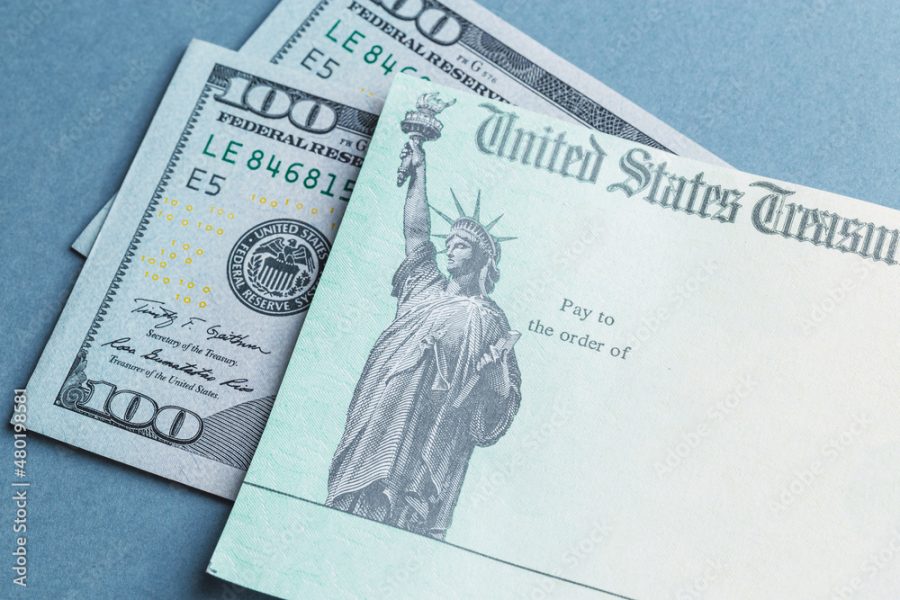The U.S. Economy depends on a Congress decision amid the U.S. debt ceiling crisis
Photo courtesy of Adobe Stock/Jeff McCollough.
Money from the United States Treasury sits on a table.
On Jan. 19, the United States hit their debt ceiling, which stands at $31.4 trillion. Secretary of Treasury Janet Yellen, is urging Congress to act “to protect the full faith and credit of the United States,” in her letter sent to the newly elected Speaker of the House, Kevin McCarthy. Congress can make the decision to suspend or increase the debt limit.
A debt ceiling or debt limit is the total amount of money that the U.S.Treasury is authorized to borrow to meet its existing legal obligations and other payments.
Since the borrowing amount was hit, the Treasury has taken the opportunity to invoke extraordinary measures to ensure that Congress has time to discuss the matter. Extraordinary measures help prolong the risk of a default, which occurs when the Treasury can no longer suspend investments of their funds or suspend sales of their state/local securities. This would catastrophize the U.S. economy and even affect the global economy.
In this case, the extraordinary measures include suspending the Civil Service Retirement and Disability Fund (CSRDF) and the Postal Service Retiree Health Benefits Fund (PSRHBF). These funds are invested in special-issue Treasury securities, so they count against the debt limit.
On Jan. 24, Secretary Yellen sent another letter stating that the Treasury can also not fully invest in the Government Securities Investment Fund (G Fund). All three funds will be made whole once the debt limit is either suspended or increased.
In December 2021, a bill was passed to increase the debt limit by $2.5 trillion, which is something that Congress can elect to do again. At this time, Congress is politically divided, and both parties stand at a disagreement on what decisions should be made. This issue will be developing until early June, as they have until then to make a decision while the extraordinary measures are still in place.
Speaker of the House Kevin McCarthy and his Republican colleagues are seeking to speak with President Joseph Biden about cutting federal spending before raising the debt limit. This could mean revising the benefits of Social Security and Medicare.
“You can’t just increase the debt limit and let President Biden keep spending like he’s done,” House Majority Leader Steve Scalise (R-La) said.
The House Republicans would like many of Biden’s programs and spending to be reduced before they decide on the debt ceiling.
On the other hand, some Democrats such as Sen. Richard J. Durbin (D-Ill.) believe there should be no time getting wasted on a negotiation since there is a limited amount of time before the U.S. economy fails.
Durbin says, “We shouldn’t play games with the national debt.”
Congress is very divided on this issue and it may take months for them to agree on a decision. If they do not come up with a decision by early June, the United States economy will default.
According to the White House Council of Economic Advisors, if a default occurs “GDP would fall, unemployment would rise, and everyday households would be affected in a number of ways.” People would end up not receiving their Social Security or Medicare benefits, and there would be increased interest rates and credit card debt.
The U.S. has never had to default, so most of the outcomes are unknown at this point.
Congress is delaying setting a resolution, while millions of Americans depend on the majority of the benefits that have the risk of being taken away if the U.S. defaults.



